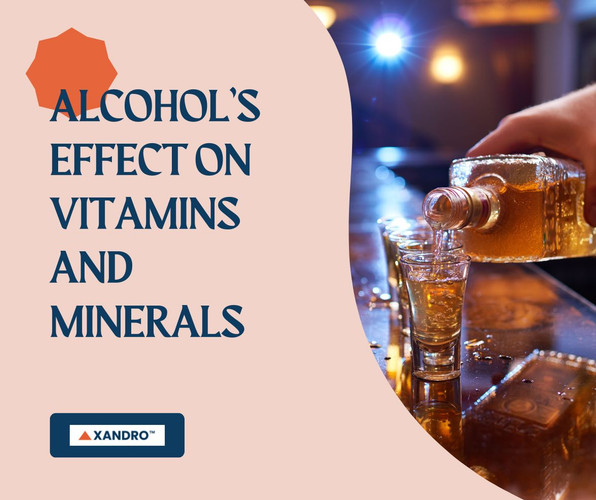Taking Magnesium with Alcohol: What You Need to Know
16th Apr 2024
Can You Take Magnesium If You Drink Alcohol?
Magnesium and alcohol. It’s a topic we commonly get asked here at Xandro, so let’s go over a few questions and information about how alcohol reacts with the body and magnesium in particular.
Further Reading:Benefits of Magnesium Glycinate in Relation to Alcohol Consumption
What Vitamins Are Depleted by Alcohol?
Alcohol depletes our bodies of a range of vitamins and minerals. These include vitamin D, calcium, potassium, phosphate, sodium and magnesium. Let’s go over how it does this:
Does Alcohol Affect Calcium and Magnesium Levels?
In our bodies, alcoholism changes microelement homeostasis (the balance of essential trace elements) of calcium and magnesium. Chronic alcohol consumption can lead to a vitamin D deficiency which reduces the ability of our intestines to absorb calcium by up to 80 per cent. Alcohol also interferes with the pancreas and its ability to absorb calcium, along with vitamin D — which, as mentioned, is needed for calcium absorption.
This is why alcoholics often have a high risk of osteoporosis as calcium is needed for bone health. Interestingly, though, one study found that calcium supplements may be helpful in reducing cravings and relapse in alcoholics.
In terms of magnesium, a magnesium deficiency can then lead to the kidneys losing phosphate, while if you have a phosphate deficiency from alcoholism, this can reversely cause reduced magnesium and ATP content in the skeletal muscle. Even during low magnesium alcohol withdrawal, hypomagnesemia may still be present. More on that below.
Does Alcohol Deplete Potassium and Magnesium?
Alcohol can cause hypokalaemia, which is low levels of potassium in your blood.
Essentially, alcohol can cause our bodies to break down our muscle fibres, which causes our muscles to release potassium. Usually, magnesium in our cells can block potassium channels and prevent some potassium loss, but since chronic alcohol use can also cause a magnesium deficiency, this function is limited.
Symptoms of hypokalaemia include nausea, muscle cramps and weakness, fatigue, paralysis in some muscles, chest pain, kidney problems and an irregular heartbeat.
If you want to test the severity of alcohol withdrawal, you can test your potassium and platelet levels.
Why do Alcoholics Have Hypomagnesemia?
Almost a third of alcoholics have hypomagnesemia. This is due to alcohol preventing magnesium absorption, along with alcoholics often eating a poor nutritional diet and frequently urinating (which excretes magnesium). Excessive alcohol intake can also reduce the amount of magnesium in our skeletal muscle and hinder our kidneys from properly using magnesium, causing it to pass through our urine too quickly.
Alcohol magnesium deficiency symptoms are the same as those due to other means, including muscle cramps, weakness, tremors, loss of appetite, fatigue, insomnia, irritability, low energy levels, joint pains, anxiety, vomiting and nausea.
What is hypermagnesemia? Hypermagnesiemia is the opposite; where our blood has abnormally high magnesium levels. This can happen when our kidney function is impaired when we receive too much magnesium or due to increased absorption from the intestinal tract due to conditions like constipation, gastritis, colitis or gastric ulcer disease. Hypermagnesemia symptoms include weakness, nausea, dizziness and confusion, along with worsening reflexes, confusion, drowsiness, flushing, headaches, constipation and bladder paralysis.
End Note
Overall, yes, you can and should take magnesium supplements if alcohol is a common part of your diet. Since magnesium is required for hundreds of reactions in the body, you need to replenish the levels that alcohol consumption depletes.
If you’re looking for the best magnesium for alcoholics, you need to find one that is able to give you as much magnesium as possible to increase your magnesium levels. These include highly bioavailable forms such as magnesium glycinate and magnesium citrate, however, since magnesium citrate has a natural laxative effect and you want to keep the liquid in your body, magnesium glycinate is a fantastic form that is gentle on the stomach and which can also improve your sleep.
Grab your hands on Xandro Lab’s Magnesium Glycinate 500mg today!
